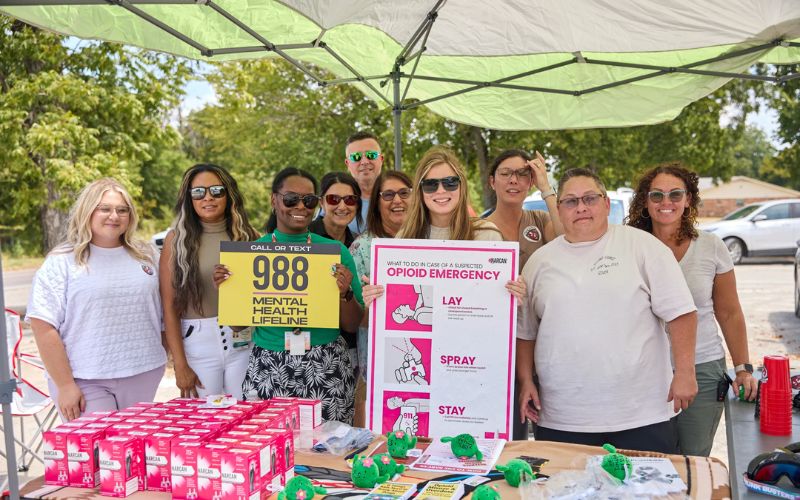
- Details
- By Elyse Wild
More than two dozen opioid prevention programs face elimination from the federal budget, including a $56 million grant for naloxone distribution and first responder training on how to use the life-saving drug.
A leaked preliminary 2026 budget proposal for the Department of Health and Human Services targets the First Responders Comprehensive Addiction and Recovery Act grants (FR-CAR), which have provided naloxone kits and training materials since 2017. The FR-CAR program operates under the Substance Abuse and Mental Health Services Administration (SAMHSA).
The program, described in a budget request last year as “an important part of the US government’s response to the opioid crisis,” received the full $56 million budget request for the current fiscal year.
The most recently available data shows that in 2023, the program funded 111 grants and distributed 101,210 opioid overdose-reversal medication kits. The funding also paid for training more than 76,641 first responders and community members on how to administer Naloxone.
While SAHMSA does not publish a comprehensive list of the grant recipients, federally recognized tribes and urban Indian organizations (UIOs) are among them.
Native Americans have some of the highest rates of drug-overdose deaths of any ethnic group. Native communities have continued to see increases in overdose deaths, even as national overdose rates declined from 2022-2023.
Tribal nations face compounding challenges when it comes to overdoses — the extreme rural geography of many reservations limits access to health care by distance, poverty, and lack of infrastructure. These barriers, combined with generational trauma, broken treaty promises, and chronic underfunding, have created severe conditions for the opioid crisis.
The Choctaw Nation has been a recipient of the four-year grant since 2017. The second round of funding concludes this September. Samantha McGee, grant project director at the Choctaw Nation Health Service Authority, has overseen the grant since 2018.
McGee said she is worried that slashing the program could be detrimental to people living on the reservation who are far from emergency health services. Choctaw Nation encompasses 10 and one-half counties, most of which are extremely rural. McGee emphasized that many communities on the reservation are so small they don’t have law enforcement agencies and may share a volunteer fire department with neighboring communities.
Providing first responders with naloxone can be the difference between life and death when it comes to an overdose.
“I was pretty sad to hear about it,” McGee said. “As far as even them getting to a hospital or an ambulance getting out to them, some of these places, you’re looking at like an hour.”
Since 2017, with support from the grant, Choctaw Nation has trained nearly 3,500 first responders and distributed 6,000 naloxone kits. The tribe has recorded 100 reversed overdoses as a direct result of the naloxone provided by the grant; but, she says, it is likely more, as not every reversed overdose is recorded.
“A lot of these agencies, especially the volunteer fire departments, may not have room in their budget to add the naloxone, ” she said. “It’s not provided to them. [Cutting the funding] would be pretty detrimental.”
McGee said she is looking into whether the tribe can tap into their share of the Tribal Opioid Settlement to cover the cost of providing naloxone to first responders. She said when it comes to the funding cuts, she urges lawmakers to consider how the overdose crisis disproportionally affects Native Americans.
“I just hope that they at least take into account tribal communities, if nothing else, just because they are disproportionately affected compared to non-Native communities,” she said. “That should be sufficient enough to want to continue funding at least to tribal communities. Hopefully, they all take that into account when they are making these final decisions.”
More Stories Like This
‘You Are Never Alone’ | How One Tribe Is Fighting Youth Suicide With Culture and Crisis Response‘Our Culture is Prevention’
This National Cancer Prevention Month, Reduce Your Risk
New Mexico Will Investigate Forced Sterilization of Native American Women
USDA Expands Aid for Lost Farming Revenue Due to 2025 Policies


